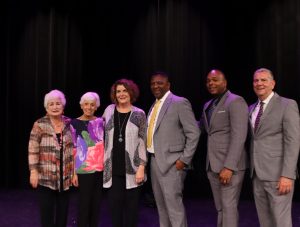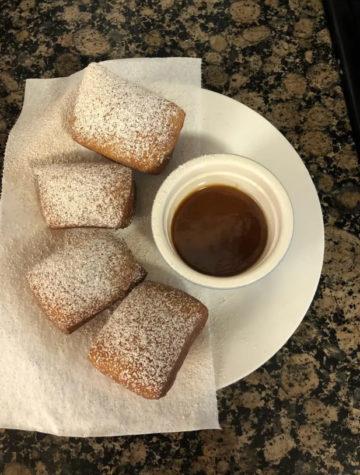Weekly Vexation: “No Offense, But…”
Photo Morgan Felt
A group of sophomore students excitedly chit chat during lunch, exchanging drama.
March 4, 2016
Offensive remarks are simply a part of life, but one phrase in particular is extremely obnoxious: no offense. It’s a phrase used by someone who is about to insult you.
“No offense, but your hair looks bad today.”
“No offense, but you’re an awful person.”
No offense is not a cure-all for any insult you want to throw my way.
Informal language is an inevitable part of a teenager’s life. The many different phrases that teenagers have a tendency to use incorrectly.For instance, “literally” and “like” are two of the most popular colloquialisms that students use in the improper context.
I’m not completely innocent when it comes to the overuse of these terms either, however, one of the most important rules that I learned the hard way was the expectation of formal language while presenting.
“[Students have] got to be able to heighten their vocabulary in appropriate moments, for the oral IB exams yeah, but past that they’re going to end up having to present in college with a certain level of eloquence,” said english teacher Sharon Lee. “And a lot of these kids are going to end up in positions that require them to be good speakers, it’s really just an important skill to have.”
The point of presentations is to prepare students for the real world, because the fact of the matter is that the use of seemingly unintelligent language is likely to be a detriment in many careers. Without a successful way to get your point across, it’s likely that people wont take you seriously.
“I think [formal language] is important because if you go into a job interview, or something formal where you have to present yourself in a certain way, people won’t take you seriously unless you use elevated vocabulary,” Kyle Freeman (’17) said.
Grammar is even a section on the SAT. If there is such a huge pressure on high school students for language, then why do so many teens struggle with the overuse of colloquialisms?
The answer to this question is simple: their friends. If you listen in on pretty much any high school conversation there will be a use of colloquialisms.
In every day conversation, colloquialisms aren’t a bad thing: it helps them students their point across, fast (not to mention the use of cliché use of texting abbreviations that are appropriate in exactly one place and one place only, texting).
However in the case of bullying (even if it is indirect), it is never okay, and in any case calling for more formal language, such as a presentation, I strongly advise against it.
We all joke around with our friends and say things we don’t mean. For the most part, the joking is harmless, but there is a fine line between joking around and saying something that will really hurt someone.
With the use of technology, bullies are more likely to say mean things and not feel the actual repercussions since they can hide behind a screen and they don’t see how it affects the receiver. Even an online comment as simple as “this video is stupid” could hurt the creator’s feelings.
But don’t worry “no offense”, none taken.






















